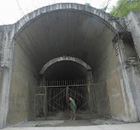Government and Policy
No country for old people
By Zhang Yuchen (China Daily)
Updated: 2010-04-14 07:11
 |
Large Medium Small |
Incentive packages
In an effort to meet the demand, Harbin authorities have been issuing licenses to private care homes since 2000, with owners required to pass tests on healthcare provision and fire safety before they can start a business.
So far, 197 licenses have been granted, showed figures from the city's civil affairs bureau. Yet there are about 200 more centers running without a license whose standards are far from qualified, said welfare director Shi.
Due to the majority being family-run and operating on a tight budget, illegal homes rarely meet the government's Code for the Design of Buildings for Elderly Persons, which limits them to one resident per every 10 square meters of floor space.
Most also contravene the revised fire protection laws that came into effect last May and demand properties have at least two emergency exits.
|
||||
Although no accidents involving fire have been reported at a care home since 2000, the risk remains a serious danger.
However, civil affairs bureaus can do little to stop people from running illegal care homes as they have no jurisdiction.
If a private care home is opened in the owner's apartment, officials are in no way responsible. Only the property management firm for that development can "regulate" them.
"The property managers rarely show up," said Song, co-owner of Joy Family for the Aged. The boss of Sheng Jia Care Center, another unlicensed home nearby, agreed and told China Daily: "It's no one else's business."
To encourage more people to enter the care home industry legally, the municipal government has offered preferential rates for electric and water supplies since 2008. New rules approved last year also enable owners to receive 1,000 yuan per bed in subsidies.
"It was a big move for the government and was the first time the local government has injected such a large amount of money into welfare services for the elderly," said Shi. "But it is still not enough. It only prompted a few of the centers to register with the authorities.
"The problem is that the central government policy is very vague. It just says local governments should help and develop centers in accordance with local finance. But regional economies vary widely, which is leading to a failure in standardizing services for the elderly."
Harbin is far less developed than cities along the East China coast, and while authorities in Qingdao in Shandong province and Shanghai can afford to offer 8,000- to 10,000-yuan subsidies to care homes, the Heilongjiang capital cannot.
With insufficient government investment, most legal private care homes are small-scale operations, resulting in only 50 percent of their beds being occupied, according to Shi.
In contrast State-run centers are often affiliated with hospitals and boast hundreds of beds, up-to-date healthcare equipment and recreation facilities. The First Welfare Service, which was built in 1957, even has a library, hair saloon and gym.
Taking shelter
Despite the growing demand for care homes, a recent survey of 1,000 elderly people by the Harbin bureau of statistics discovered 85 percent would "prefer" to stay at home with their family, while only 7 percent felt they need professional care.
Nationwide, about 97 percent would rather stick with tradition than enter a nursing home, said Tang Jun, a sociologist with the China Academy of Social Sciences, who urged the government to focus more on developing community-based care.
In an interview with Beijing media in February, Tang set out a vision for sheltered accommodation, where elderly people live in their own homes but can readily call on the services of local doctors and nurses in the event of an emergency.
Harbin, as well as other cities, has attempted to popularize this kind of service and set up about 110 community health centers that provide door-to-door services. However, some centers later closed because they were not making any money.
The model on which to base the system remains subject to debate, however, especially after Beijing's first community-based care center in Pingguoyuan closed down after complaints about poor service.
"The best way to promote services for the elderly is to combine government efforts with commercial business. But in the end, the responsibility of civil services ultimately lies with the government," said Shi.
(China Daily 04/14/2010 page1)







